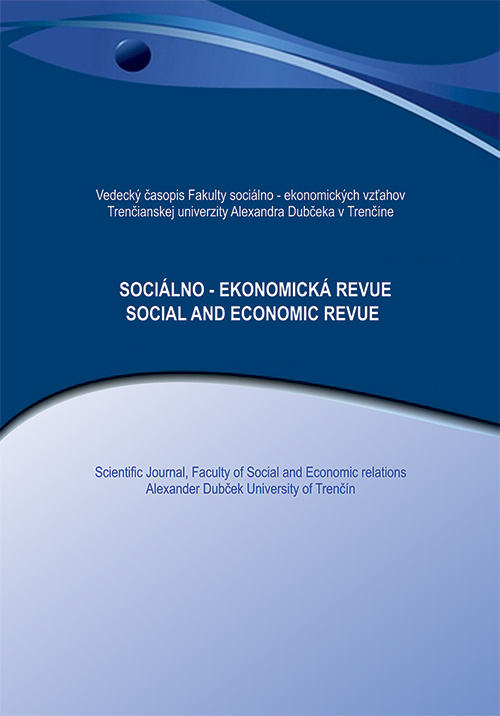ATYPICAL EMPLOYMENT
Western Europe is facing an increasing number of persons, who have different forms of atypical employment since the eighties. In international papers there is a consensus, that this process is the result of pressure on flexibility of the labour markets on part of the trading companies. Another (non-standard-) type of employment contract - full-time employment for a fixed period – equally brings positive and negative aspects with it. On the one hand this type of flexibility of labour contracts can help to raise the employment rate and to integrate into the labour market various disadvantaged social groups (women after maternity leave or fresh graduates without work experience). On the other hand research from countries of Western Europe shows that atypical employment is often connected with lower income, restricted access to educational programs or worse working conditions, even descent into a lower social class. Very difficult are various forms of precarious employment, the common characteristic of which is uncertainty. The member states of the EU in some cases should speed up the solution of the problem of segmentation within the labour markets and of full and part-time jobs. It would also be important to ensure an adequate balance between flexibility and security of employees at work.
Vydanie: 2017/3 Strany: 21-27 Klasifikácia JEL: M55, J41, M51
DOI:
Kľúčové slová: atypical employment, segmentation of the labour market, precarious employments
Sekcia: HUMAN RESOURCES AND PERSONNEL MANAGEMENT
Kontakty:
Wefersová Jarmila, PhD.
Department of Economics and Finance
Faculty of management
Comenius University in Bratislava
Odbojárov 10, 82005 Bratislava 25, Slovensko
e-mail: jarmila.wefersova@fm.uniba.sk
Literatúra:
Atkinson, A.B. (2015), Harvard University Press. 384 p. ISBN 978-0-674-50476-9
Keller, Seifert, H. 2013. Atypische Beschäftigungsverhältnisse:Flexibilität, soziale Sicherheit und Prekarität. [on-line] [cit.: 2017-01-23]. Retrieved from: http://www.boeckler.de/pdf/wsimit_2006_05_Keller.pdf
Piketty, T.. (2013) Kapitál v 21. storočí. Slovak edition 2015 by Ikar. 335.s. ISBN 978-80-551-4248-7
Seifert, H., Struck, O. (2009). Arbeitsmarkt und Sozialpolitik. Wiesbaden VS Verlag für Sozialwissenschaften. 60 p. ISBN 978-3-531-16304-8
WelgE, M. K., Holtbrűgge, D. (2006). Internationales Management. Stuttgart/Germany: Schäffer-Poeschel Verlag Stuttgart. 254 s. ISBN -13: 978-3-7910-2465-3, ISBN-10:7910-2465-5
Gabler Wirtschaftslexikon. (2017). Atypische Beschäftigung. [on-line] [cit.: 2017-01-23]. Available at: http://wirtschaftslexikon.gabler.de/Definition/atypische-beschaeftigung.html
Prognostické práce SAV. (2013). Pracovné podmienky v typických, netypických a veľmi netypických zamestnaniach na Slovensku: mapovacia štúdia [on-line] cit.: 2017-01-23]. Retrieved from: http://www.prog.sav.sk/fileadmin/pusav/download_files/prognosticke_prace/2013/PP_5_2013_3_Clanok1_Babos.
Pracovné parvo. (2017). Arbeitsrecht Gesetze. [on-line] [cit.: 2017-10-02]. Retrieved from: https://www.hensche.de/Rechtsanwalt_Arbeitsrecht_Gesetze.html#tocitem1


